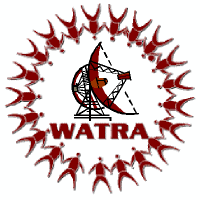311
Joy Agwunobi
The West Africa Telecommunications Regulators Assembly (WATRA) has lauded Nigeria’s pioneering role in broadband mapping harmonisation across the sub-region, describing the country’s model as a benchmark for West Africa’s digital transformation agenda.
The commendation came during the International Telecommunication Union (ITU) Africa Broadband Mapping (BB-Maps) National Event, held recently in Abuja under the pilot phase of the Africa-BB-Maps project.
The three-day forum convened international stakeholders, policymakers, regulators, and technical experts to share insights, align strategies, and deepen regional cooperation on broadband infrastructure mapping.
Representing WATRA at the meeting, Ruffus Samuel, principal manager, partnerships, underscored the strategic importance of harmonising broadband mapping frameworks across ECOWAS and WATRA member states. Speaking during the session on “Context and Current State – Intervention by International Partners,” Samuel stressed that cross-border alignment remains critical to bridging connectivity gaps.
“Regional bodies like ECOWAS and WATRA must continue to champion cooperation and knowledge sharing,” he said, while also noting that “Nigeria’s progress demonstrates that harmonisation is not only possible but also essential to unlocking Africa’s digital potential.”

At the event, the Nigerian Communications Commission (NCC) showcased its national broadband mapping model, which was widely hailed as a best-practice reference for Africa. Participants praised the Commission’s technical expertise and policy foresight, noting its success in establishing interoperable and scalable systems that can serve as a foundation for sustainable ICT growth.
Aliyu Yusuf Aboki, WATRA’s Executive Secretary, reinforced the Assembly’s support for Nigeria’s approach, noting that broadband mapping is central to closing digital divides across West Africa.
“Nigeria’s robust and transparent broadband mapping system stands as a model for the region,” Aboki said. “Through data-driven policymaking, we can close connectivity gaps and lay the groundwork for an inclusive digital economy.”
The NCC’s Executive Vice-Chairman and CEO, Aminu Maida, presided over the opening ceremony, which also featured high-level representation from global and regional bodies. Among the dignitaries were Cosmas Luckyson Zavazava, Director of the ITU Telecommunication Development Bureau; Zissimos Vergos, Deputy Head of EU Delegation to Nigeria; and Inga Stefanowicz, Head of Green and Digital Economy, EU Delegation, alongside senior representatives from ECOWAS, ITU, and Nigeria’s ICT ecosystem.
Discussions throughout the event highlighted the growing need for collaboration among governments, regulators, infrastructure owners, and technology partners to ensure broadband data is reliable, consistent, and widely available.
The Africa-BB-Maps project forms part of broader initiatives, including the Africa–Europe Digital Regulators Partnership and the EU Global Gateway Strategy, which promote sustainable digital infrastructure development and cross-border cooperation. WATRA is expected to play a vital role in translating these strategies into actionable frameworks across its 16 member states.
“This initiative is more than mapping—it’s about enabling investment, expanding opportunity, and advancing our collective digital aspirations,” Aboki remarked.
To consolidate progress, stakeholders at the forum recommended the creation of a National Broadband Mapping Task Force to be coordinated by the NCC. The task force would serve as a unifying platform for all relevant stakeholders under a structured data governance framework, with responsibilities that include ensuring regular and timely data updates; promoting adoption of standardised data formats, and guaranteeing availability of trusted and verifiable data sources
Participants unanimously agreed that broadband mapping success depends on collaboration, open data sharing, and sustained engagement between public institutions, private sector players, and development partners.
WATRA concluded the event by reaffirming its commitment to supporting Nigeria and other member states in harmonising broadband mapping, fostering capacity building, and strengthening regional cooperation to accelerate Africa’s digital transformation.



